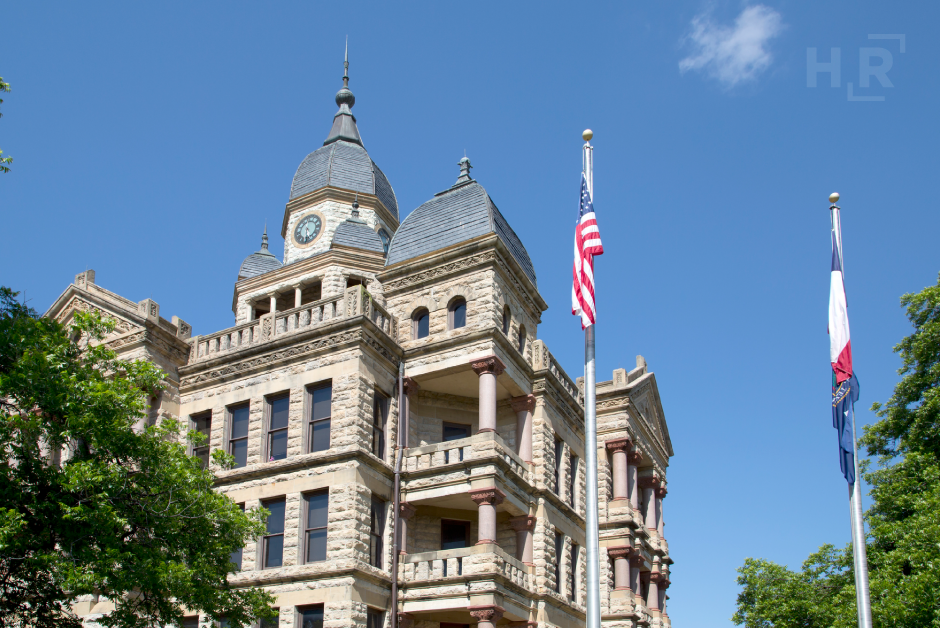Denton City Council Delays Vote On Fair Chance Hiring Ordinance To Debate Second Chance Hiring
Denton City Council delays vote on Fair Chance Hiring Ordinance after considering public feedback. Denton Chamber of Commerce proposes a second chance hiring model, prompting reevaluation.

After months of public input, the Denton City Council once again tabled a vote on the city’s proposed Fair Chance Hiring Ordinance restricting an employer’s inquiry into a job applicant’s criminal history. The unexpected move came after a proposal by the Denton Chamber of Commerce to rethink fair chance hiring in support of a second chance hiring model.
Second chance hiring and fair chance hiring are terms often used interchangeably, but they have different meanings.
Second chance hiring is the practice of hiring individuals with a criminal record and who are looking for a fresh start in their career. The concept of second chance hiring is not new, but it has gained more attention in recent years as a way to address the issue of mass incarceration and help individuals with a criminal record re-enter the workforce.
The Federal Government and several cities and states have implemented policies or programs that entice employers to adopt second chance hiring models. For example, the Work Opportunity Tax Credit (“WOTC”) is a federal tax credit that incentivizes employers to hire individuals from certain target groups, including ex-felons. The WOTC can be claimed by any employer that hires eligible ex-felons within a year of being convicted of a felony or being released from prison for the felony. In general, the WOTC equals 40% of up to $6,000 of wages paid to or incurred on behalf of an individual who is in their first year of employment.
Fair chance hiring, on the other hand, is a broader term that encompasses hiring practices that give individuals with a criminal record an equal opportunity to compete for job opportunities. Fair chance hiring initiatives, often called “ban the box” measures, revolve around delaying inquiries into an applicant’s criminal history until later in the hiring process, typically after a conditional job offer has been extended to the applicant. This approach allows job seekers to be evaluated based on their qualifications and skills rather than being prematurely excluded due to their criminal history. These initiatives do not limit an employer’s authority to reject an applicant for a lawful reason.
As originally drafted, the proposed Fair Chance Hiring Ordinance in Denton, Texas, follows the footsteps of several other U.S. jurisdictions, including Austin and De Soto in Texas. It would apply to private employers with 15 or more employees and seek to prevent unlawful discrimination by prohibiting specific actions:
Publishing information that suggests criminal history as an automatic disqualifier for employment.
Inquiring about an applicant’s criminal history on a job application.
Soliciting or considering criminal history information before a conditional employment offer.
Rejecting an applicant because criminal history was not provided before a conditional employment offer.
Taking adverse action based on criminal history without an individualized assessment. Employers must notify the individual in writing if such action is taken due to their criminal history.
Employers may still inquire about criminal history when required by state or federal laws, such as for certain childcare or public safety positions.
During a recent Denton City Council meeting, Erin Carter, President of the Denton Chamber of Commerce, introduced an alternative approach to the proposed fair chance hiring ordinance. Rather than solely implementing the ordinance, Carter proposed collaborating with the city to establish a program incentivizing businesses to engage in second chance hiring initiatives.
The Denton Chamber of Commerce underscores the benefits of second chance hiring partnerships, emphasizing the potential for businesses to tap into a broader pool of local talent by considering individuals with criminal backgrounds. They are committed to offering educational resources and support to facilitate second chance hiring, including upskilling and reskilling programs tailored to ex-offenders, thus bolstering the local workforce.
Highlighting existing support mechanisms, such as the Workforce Opportunity Tax Credit, the Chamber addressed concerns about associated costs, including potential insurance premiums. They asserted that hiring from second-chance populations is not inherently riskier, emphasizing the transformative impact of providing opportunities to ex-offenders.
At the conclusion of the testimony, Council member Brandon Chase McGee moved to delay the vote on the proposed Fair Chance Ordinance for four months, allowing time for the Chamber and the city to develop a second chance hiring program. The council voted 5-2 in favor of the motion, postponing the controversial ordinance, which has been debated since 2022. Employers in Denton are encouraged to stay informed as the fates of either a fair chance or second chance hiring ordinance remain questionable.
Release Date: February 8, 2024

Alonzo Martinez
Alonzo Martinez is Associate General Counsel at HireRight, where he supports the company’s compliance, legal research, and thought leadership initiatives in the background screening industry. As a senior contributor at Forbes, Alonzo writes on employment legislation, criminal history reform, pay equity, AI discrimination laws, and the impact of legalized cannabis on employers. Recognized as an industry influencer, he shares insights through his weekly video updates, media appearances, podcasts, and HireRight's compliance webinar series. Alonzo's commitment to advancing industry knowledge ensures HireRight remains at the forefront of creating actionable compliance content.